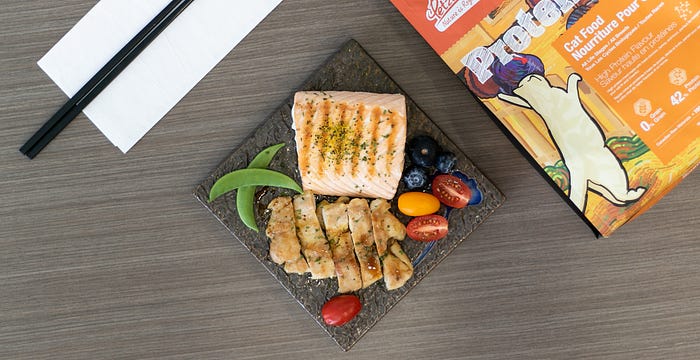
Look for high quality animal proteins
Protein is undoubtedly the most important nutrient for cats. As your cat ages, they gradually lose muscle and bone density and will need high-quality protein, preferably from animal sources that are present in their natural diet, in their food. The average protein level in cat food on the market is around 26%. Use this value as a reference; buy higher if you can, but never lower. Also be careful to avoid cat food made from meat scraps and opt for products that are made from fish or chicken instead.
Choose a low-carb diet to avoid obesity
As carnivores, cats are less optimized for carbohydrate intake than omnivores and herbivores. This means that on a high-carb diet, cats are prone to obesity, which can cause all sorts of cardiovascular issues. Thus, owners should pay extra attention to their cat’s carb intake.
Given that many of the cheaper cat foods on the market contain large amounts of grain, which is high in carbohydrates but low in proteins, to increase portion size, it is recommended that owners either choose “grain-free cat foods” or products specifically labelled as protein-based. Of course, carbohydrates are necessary to some level, and glycemic index potatoes, sweet potatoes, and cassavas are better carbohydrate sources than grains.
Choose a diet with little or no additives
Like humans, a cat’s digestion capabilities decline with age, so owners should pay attention to whether or not their cats’ food contains additives and chemical preservatives like BHA. Antioxidants such as butylated hydroxytoluene can be especially bad news, as studies have shown that these chemicals can increase the risk of cancer in animals, and some antioxidants are banned in human foods. In general, always choose cat food with fresh ingredients.

Find the ideal cat food for your elderly cat, check out Petzlove Official Website
